16 - 20 January 2023. During the Davos 2023 Conference hosted by the World Economic Forum, speakers highlighted the need for investment in small-scale farmers, regenerative agriculture, and data technologies.
The Conference brought together academics, governments, businesses, nonprofits, artists, advocacy organizations, and other parties to discuss pressing issues of the day, with food security and food systems discourse on the menu.
Extracts of the programme and recordings
16/01. Regenerative Farming by 2030 – From Talk to Action: How, and How Fast, Can we Resource the Transition to Nature-Positive Farming?
No recording available.
Taking care of agricultural land and its biodiversity is essential in addressing the nature and climate crises and reaching the Sustainable Development Goals. Farmers, governments, businesses, academics and civil society have discussed principles, policies, metrics and methodologies to take food systems towards regenerative outcomes. But with only 7 years to go till 2030, and 5 of those needed to realise results on the ground, how and how fast can we support farmers to transition to nature-positive outcomes? This gathering called to action to mobilise financing, innovation, knowledge and support to farmers around the world to realise their potential to transform food production and capture carbon.
- André Hoffmann, Vice Chairman, Roche, Co-Founder, InTent, Switzerland
- Svein Tore Holsether, President and CEO, Yara International, Norway
- Hanneke Faber, President Global Nutrition, Unilever, UK
- Geraldine Matchett, Co-Chief Executive Officer, DSM, Netherlands
- Chrystel Monthéan, Executive Vice-President, Yara Americas
- Jennifer Morris, Chief Executive Officer, The Nature Conservancy, US
17/01. Mobilizing Investments in Sustainable Food and Agriculture Systems in Africa – A High Level Dialogue
This session showcased the development of Food Systems strategies on the African continent and explores the investments required to advance transformation.
No recording available.
AGRA, in partnership with the African Union and NEPAD, has facilitated numerous dialogues and provided support to governments to go beyond national pathways to advance practical action in advancing Food systems thinking and transformation in Africa. Action and impact will require resources.
- At this gathering governments, businesses, civil society discussed financing and investment opportunities to advance funding and action that will deliver food systems transformation in Africa.
- Participating governments, companies, and development partners, at the forefront of food systems transformation, showcased national strategies, flagship programs and investment opportunities. The session also explored opportunities to unlock much-needed public and private finance for
food systems transformation, as well as the latest efforts by the African Union to track and monitor progress, with the aim of driving continual country-level improvement for people, planet, and prosperity - Participants identified key priorities and actions ahead of the AGRF 2023, the Africa’s Food systems summit taking place in Dar es Salaam, Tanzania in September 2023.
Key questions that were addressed in this session:
- How are African countries, who are spearheading transformation responding to the ambitions they have set themselves through their national strategies?
- How can we close the annual USD 200 billion investment gap in Africa’s food systems transformation?
- Moderator - Sir David Nabarro, UN Response Group and Strategic Director, 4SD
- Dr. Agnes Kalibata, President, AGRA and Host of the AGRF Secretariat
- H.E Samia Suluhu Hassan, President, United Republic of Tanzania
- Jai Shroff, Global Chief Executive Officer, UPL
- Rodrigo Santos, Member of the Board of Management; President, Crop Science Division, Bayer
- Berry Marttin, Member of the Managing Board, Rabobank
- Mr Martin Bwalya, Director Knowledge Management and Program Evaluation AUDA, African Union Development Agency (AUDA-NEPAD)
- Hussein Mohamed Bashe, Minister for Agriculture, United Republic of Tanzania
- Dr. Ildephonse Musafiri, Minister of State, Ministry of Agriculture and Animal Resources, Rwanda
- Anne Beathe Tvinnereim, Minister of International Development, Norway
- Ndidi Okonkwo Nwuneli, Co-Founder and Executive Chair, Sahel Consulting: Agriculture & Nutrition Ltd.
- Fernanda Lopes Larsen, Executive Vice President Africa & Asia, Yara International
- Mauricio Adade, President, Latin America and Global Malnutrition Partnerships, DSM
- Rodger Voorhies, President of Global Growth and Opportunity, Bill & Melinda Gates Foundation
- Vera Songwe, Chair of the Board, Liquidity and Sustainability Facility
- Jennifer Baarn, Managing Director, AGRF
- Adam Gerstenmier, Executive Director, Food Action Alliance
- Boaz Keizire, Head, Policy & Advocacy, AGRA
- Special remarks - Mr. Alvaro Lario, President, International Fund for Agricultural Development (IFAD)
17/01 Cooking up Something New: Innovation to Shape the Future of Food
18/01. The future of food security.
From processing to packaging, food systems are being shaped and reimagined. The panel looked at what breakthrough technology and ideas could help revolutionize patterns of consumption.
- Werner Baumann, CEO of Bayer;
- David Beasley, executive director at the UN World Food Programme;
- Hanneke Faber, president of nutrition at Unilever;
- Sara Menker, CEO of Gro Intelligence
- Sean de Cleene, head of Food Systems Initiative at the World Economic Forum Geneva.
19/01. Tackling The Protein Dilemma
- Moderator: Jenny Davis-Peccoud, Head Sustainability & Responsibility, Bain & Company
- Mariana Vasconcelos, Co-Founder and CEO of Agrosmart
- Ivo Lansbergen, President Animal Nutrition & Health at DSM
- Arnold Puech d’Alissac, President, World Farmers’ Organisation (WFO)
- Juan Lavista Ferres, VP, Chief Data Scientist and Lab Director, Microsoft AI For Good Lab
19 January 2023. SDG Tent: Nature Positive
The combined loss of nature and climate change is threatening our health, our wellbeing, our societies and our economies. It is no longer a theory or a distant risk but something that is happening right here and now. The recent COP15 Kunming-Montreal Agreement commits the world to halting and reversing biodiversity loss by 2030. This must be the launch pad for action from governments, business, and society to transition towards a nature-positive world.The ‘Nature Positive Dinner’ at Davos 2023 aimed to be the impetus for the bold, wide-ranging and urgent action required to deliver a nature-positive world. It dived into detail about how we can all contribute towards delivering the vision of more nature in 2030 than we had in 2020 through protection, restoration and sustainable use, and how to finance such a globally important and critical transition. Action towards a nature-positive future must be swift and bold. We must all double down on nature-positive action as we move from discussion and negotiation to implementation, action and, most importantly, finance this delivery.
- Sweta Chakraborty, Climate Behavioral Scientist and CEO, We Don’t Have Time US
- Diane Holdorf, Executive Vice President, WBCSD
- Hindou Oumarou Ibrahim, Coordinator, Association of Peul Women & Autochthonous Peoples of Chad
- Marco Lambertini, Special Envoy, WWF International
- Anushka Ratnayake, Founder and CEO, MyAgro, Senegal – Social Entrepreneur of the Year 2020
- Johan Rockström, Director, Potsdam Institute for Climate Impact Research (PIK)
- Eva Zabey, Executive Director, Business For Nature
- Peter Bakker, President & CEO, World Business Council for Sustainable Development
- Rohitesh Dhawan, CEO, International Council on Mining and Metals
- Berry Marttin, Member of the Managing Board, Rabobank Group
- James McCall, Chief Sustainability Officer, Hewlett-Packard (HP)
- Mads Nipper, President and CEO, ORSTED
- Cherie Nursalim, Vice Chairman, GITI Group
- Achim Steiner UNDP administrator
- Dr Jeanne d'Arc Mujawamariya Minister of Environment, of the Republic of Rwanda
- Noa, Singer, Israel
- Carlos Nobre, Brazilian Scientist focused on Amazon
- Sanda Ojiambo, Assistant Secretary-General; Executive Director & CEO of the United Nations Global Compact
- André Hoffmann, Vice-Chairman, Roche, Co-Founder, InTent
- Alain Pilloux, Vice President, Banking, European Bank for Reconstruction and Development
- Kirsten Schuijt, Director-General, WWF International
- Andrew Steer, President & CEO, Bezos Earth Fund
- Debbie Aung Din Taylor, Co-Founder, Proximity Designs
- William Warshauer, CEO, Technoserve
- Marina Silva, Minister for Environment and Climate Change, Brazil
Related:
Article by Max Sano, a Research and Writing Intern with Food Tank based in Queens, New York.
Examples
During the Davos 2023 Conference hosted by the World Economic Forum, speakers highlighted the need for investment in small-scale farmers, regenerative agriculture, and data technologies.
The Conference brought together academics, governments, businesses, nonprofits, artists, advocacy organizations, and other parties to discuss pressing issues of the day, with food security and food systems discourse on the menu.
“Farmers around the world (especially smallholder farmers) bear the burden of climate impacts and food insecurity but can’t bear the burden of making the transition alone,” Tania Strauss, Head of Food Systems Initiative at the World Economic Forum, stresses.
Alvaro Lario, President of the U.N. International Fund for Agricultural Development (IFAD) shares Strauss’ concern and underscores the importance of supporting rural agriculture. “Only long-term investments in rural economies can provide long-lasting solutions to hunger, under-nutrition and poverty,” Lario said in a statement ahead of the conference. “This is what will enable small-scale farmers to increase local production, better adapt to climate change, build short and local food chains, build and sustain local markets and commercial opportunities, and create small rural businesses.”The speakers also call for urgent investment in rural food systems. According to IFAD, small-scale farmers feed two out of three people on the planet, yet they face the brunt of the climate crisis and a lack of financial support. Even taking into account worsening inflation, local and regional conflicts, and extreme weather events, farmers who make up the Global Majority produce 30 percent of food products on just 11 percent of total farmland, they report.
IFAD Goodwill Ambassador Idris Elba also sounded the alarm for rural investment, stating “[Farmers] are not just looking for aid and handouts, they’re looking for investment.”The speakers also promoted regenerative agricultural practices as another means to strengthen global food security. The transition away from conventional agriculture was a key component of conversations around achieving food security moving forward.
In alignment with The Global Biodiversity Framework, Food Sustainability Director at Unilever Dorothy Shaver and Director of One Planet Business Stefania Avanzini calls for transformation of agricultural subsidies toward regenerative farming practices.
“When properly implemented, regenerative agricultural practices can protect and enhance biodiversity at and around farms, improve or preserve carbon and water retention in the soil and enhance the resilience of crops and nature,” Shaver and Avanzini write in a memo.
“Governments can support the transition to regenerative agriculture by reforming harmful agricultural subsidies and creating opportunities for an equitable, nature-positive and Net-Zero economy.”In order to support both small-scale farmers and the regenerative agriculture transition, researchers encourage the integration of food and data systems.
Agri-tech researchers at the World Economic Forum call for further attention to cleaner, more-streamlined data collection to support farmers as climate instability and market fluctuations continue to occur in the near future.
Julie Sweet, Chair and CEO of Accenture, points out the benefits of streamlining data across different cultural and climatic contexts:
Julie Sweet, Chair and CEO of Accenture, points out the benefits of streamlining data across different cultural and climatic contexts:
“In many cases people have been doubters about why you need to have really clean data connecting to external data, use these then foundational models on specific use cases—a lot is going to be in digital manufacturing, in agriculture, industrial use cases – and it reminds everyone you have to get the data right.”The World Economic Forum sees three key solutions to world food insecurity:
- Financial investment in regenerative agriculture,
- robust policy to fire up market growth,
- and national leadership in transforming their food systems.
“We must embrace complex and holistic solutions like climate change and food security together,” Strauss says.
Related:
The Food Action Alliance was launched during the Sustainable Development Impact Summit 2019 by the World Economic Forum, International Fund of Agricultural Development (IFAD) and Rabobank, and today engages over 35 partners from government, business, international organizations, civil society and farmer organizations.
Flagship initiatives supported by the alliance contribute to tangible impact on food systems in multiple ways, including promoting human health, planetary health, streamlining value chains, improving livelihoods and pushing forward country-led initiatives that strengthen local food systems.
- Alliance partners in Southern Africa have supported the Southern African Confederation of Agricultural Unions (SACAU) Poultry Solution, which aims to reach 10 million farmers in the region, 50% of which will be women and young agripreneurs. Results of these collaborations include developing a concrete concept note that highlights specific investment opportunities, building and engaging a group of 10+ supporting partners and gaining international leadership visibility through events. SACAU has mobilized multiple stakeholders in working groups on regional trade, livestock feed and consumer awareness to co-develop solutions.
- The alliance is involved in other value chain transformation initiatives including East African dairy through Dairy Nourishes Africa.


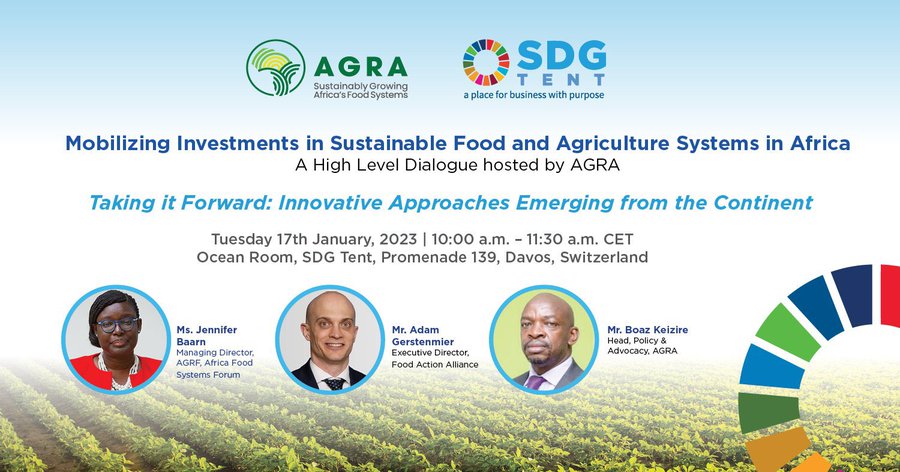
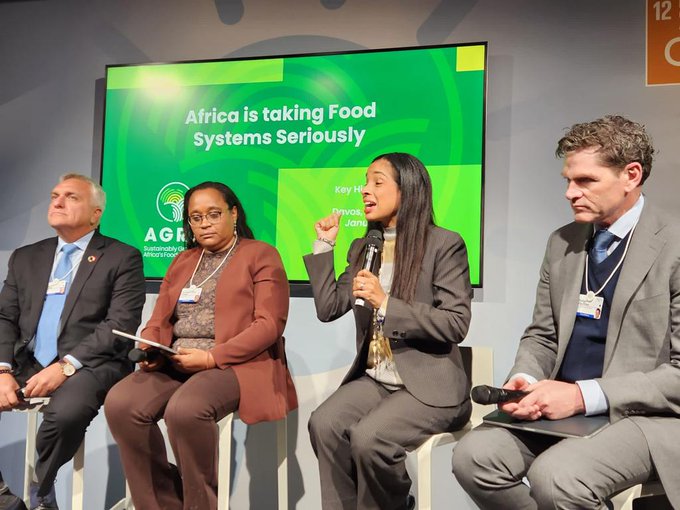
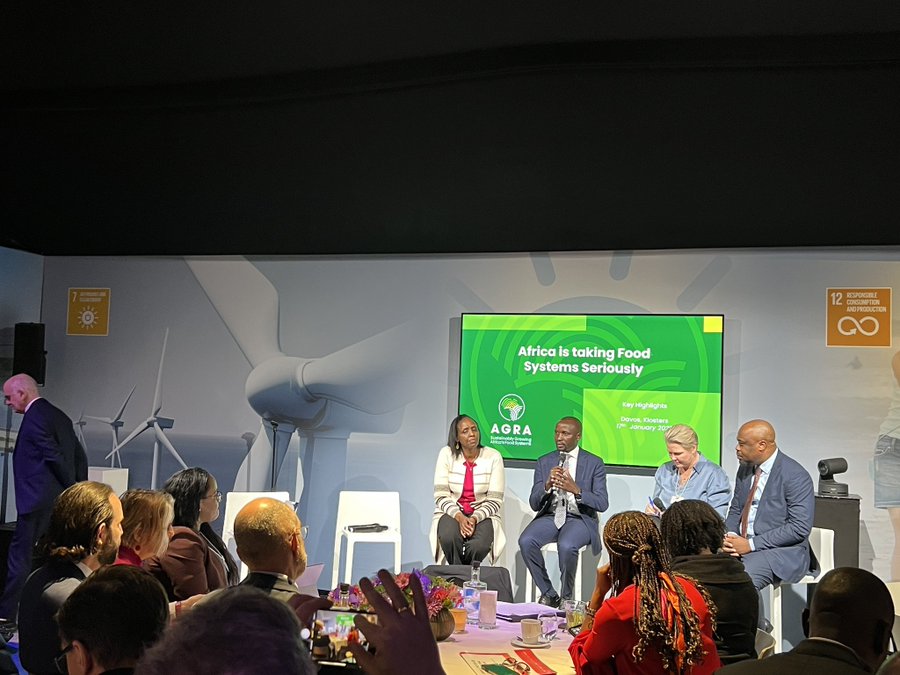
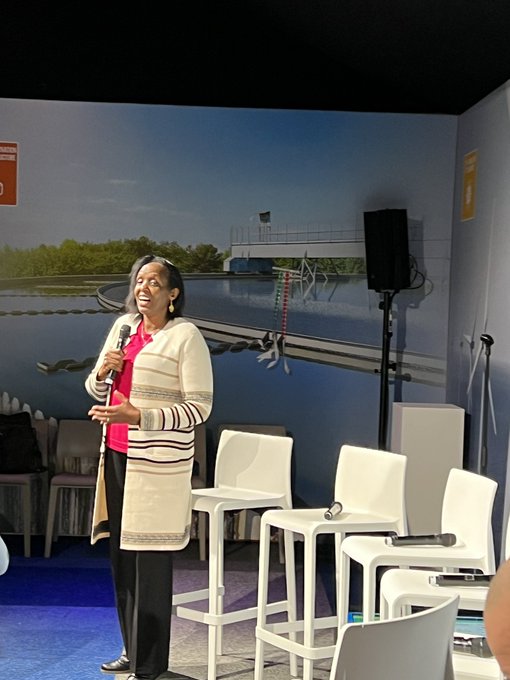
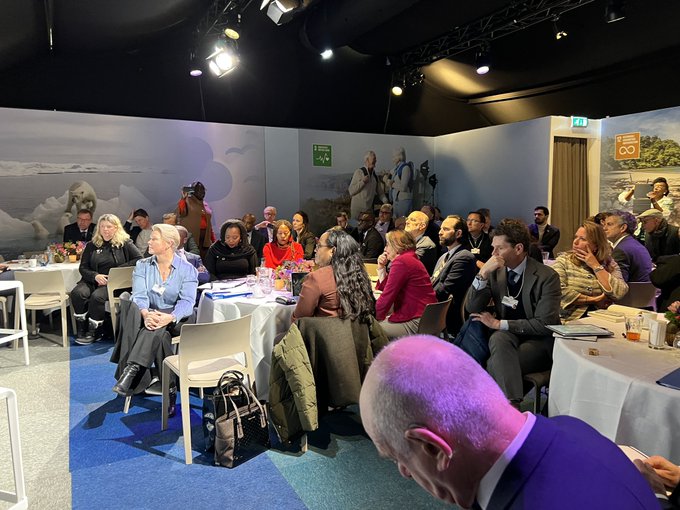

No comments:
Post a Comment